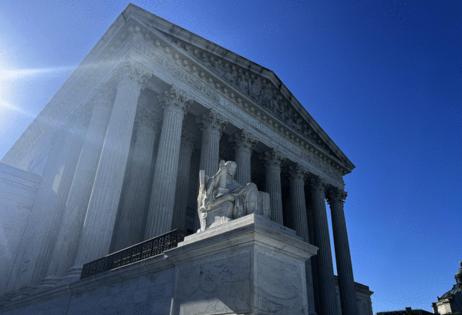Noah Feldman: If 'conversion therapy' is free speech, what isn't?
Published in Op Eds
Based on oral arguments last week, the Supreme Court’s conservative majority seems likely to hold that the First Amendment protects so-called conversion therapy for gay and transgender minors when it is conducted entirely through conversation. If so, it would be the first time the court has ever held that talk therapy is fully protected speech, rather than a form of medical treatment conducted through words.
That result, in Chiles v. Salazar, would undermine numerous regulations that govern professional conduct performed verbally, from law to the provision of financial services and transactions. Driven by culture-war concerns over gender and sexual orientation, the court seems poised to endanger the very regulatory framework that ensures the effective functioning of markets.
The Colorado law before the Supreme Court appears to prohibit conversion therapy not only when it’s performed using electroshock or other physical means, but also when it is performed through therapeutic conversation alone. Indeed, as a licensed counselor, the petitioner challenging the constitutionality of the law in this case is not permitted to do anything other than speak to a patient.
The fact that talk therapy involves nothing more than conversation might make you think that it should fall under the aegis of free speech. But a moment’s reflection reveals that many acts we perform using words are better conceptualized as conduct than as speech.
Take the practice of law. It’s accomplished almost exclusively through words — both spoken and written. But you must be licensed to practice law, and the practice of law is governed by many regulations, including those that determine what counts as a legitimate argument as opposed to a frivolous one, which can be sanctioned by a court.
The same is true of other licensed professions, which also have binding rules that govern speech. Regulations dictate what accountants and financial advisers can tell their clients and what they can’t say. Perhaps the most fundamental law undergirding capitalism is the one that says you can’t make a materially false statement in conjunction with the sale of a security. That’s a ban on speech — without which we would have little confidence in markets.
The best way for the court to address the conversion therapy ban would be to hold, as a number of appellate courts have done, that the government isn’t regulating speech; it’s regulating conduct — namely the practice of therapy or mental health counseling. True, talk therapy is performed through words. But what’s being licensed and regulated is the conduct of medical care, which can be accomplished through words. That is different from a regulation directed at speech itself.
The Trump administration’s Office of the Solicitor General argued, as a friend of the court, that the case should be treated as one in which you have to consider the content of speech to decide whether the law is being violated. In a 2010 case, Holder v. Humanitarian Law Project, which involved the law that criminalizes material support for terrorism, the court said that such a law must be subject to strict scrutiny — the highest level of First Amendment analysis. Specifically, the court held that the material support law, which covers material support for terror through advice or counsel, was subject to a form of strict scrutiny (which it ultimately survived).
The key difference is that the Holder case wasn’t about regulating a form of professional conduct that happens to be achieved through speech, but about an act that is generally criminal — namely, supporting terrorism.
Once you apply strict scrutiny to the regulation of professional conduct achieved through speech, every such regulation must survive the demanding standard. That means the government has to show that it has a compelling interest in prohibiting the relevant conduct, and that it has chosen the least restrictive means of doing so. Many familiar and highly valuable forms of professional regulation may not qualify as the least restrictive means of achieving their objectives.
The justices sounded worried about the possibility that if states can ban conversion therapy, they could also prohibit talk therapy that encourages young people to explore their sexuality or consider gender transition. The concern sounds plausible on its face, to be sure. The politicization of healthcare regulation is extremely dangerous.
But the way to resist politicized regulation is to insist on sound medical or other relevant professional evidence for such regulation — not by applying the First Amendment.
Free speech is fundamentally important to the functioning of our constitutional democracy. Applying free-speech doctrine to professional conduct will, in the long run, weaken the First Amendment, not strengthen it. Courts that have to apply strict scrutiny to necessary regulations will have to find that strict scrutiny is satisfied even when the means aren’t the least restrictive. The result will be a “paper tiger” First Amendment — one that looks tough but is ultimately toothless.
____
This column reflects the personal views of the author and does not necessarily reflect the opinion of the editorial board or Bloomberg LP and its owners.
Noah Feldman is a Bloomberg Opinion columnist. A professor of law at Harvard University, he is author, most recently, of “To Be a Jew Today: A New Guide to God, Israel, and the Jewish People."
_____
©2025 Bloomberg L.P. Visit bloomberg.com/opinion. Distributed by Tribune Content Agency, LLC.
























































Comments